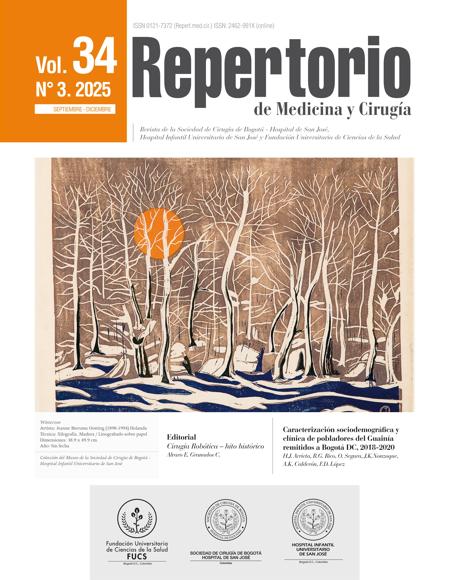TAC plan: an experience for enhancing teachers´ competencies in the use of technology
Plan TAC: una experiencia para mejorar las competencias de los docentes con el uso de tecnologías
![]()
![]()

Show authors biography
Introduction: Due to the impact of new technologies and their use in education as a complementary tool, it is essential that teachers know how to use new technologies to support the training process. Objective: to review the implementation of information and communication technologies (ICT) training for teachers, based on the TAC plan, at Fundación Universitaria de Ciencias de la Salud, Bogotá, Colombia (FUCS), after a period of 3 years of implementation. Materials and Methods: FUCS started the TAC Plan in 2020, based on an internal diagnosis, UNESCO´s ICT Competency Framework for Teachers and the National Ministry of Education, including a continuous follow-up to strengthen the institution´s undergraduate and some graduate programs teachers´ competencies. Results and Discussion: in the three implementation years, 603 certifications earned by 360 teachers, were issued, for the 12 courses provided. But the increase in training did not yield proportional changes in evaluation outcomes for various subjects. Hence, the reasons for not using said training in virtual environments should be reviewed. Conclusion: training plans are required, where the different areas involving teachers are aligned with the core objectives of obtaining certificates in education technologies and how these respond to institutional objectives of educational quality.
Article visits 5 | PDF visits 1
Downloads
- Organización de las Naciones Unidas para la Educación, la Ciencia y la Cultura (UNESCO). Marco de competencias de los docentes en materia de TIC (3ra. Ed). Francia: UNESCO; 2019.
- Sacavino SB, Candau VM. Enseñanza híbrida: desafíos y potencialidades. Estudios pedagógicos. 2022;48(2):257-266. http://dx.doi.org/10.4067/S0718-07052022000200257
- Plan Estratégico de Desarrollo 2020-2025. Bogotá: Fundación Universitaria de Ciencias de la Salud (FUCS); 2020.
- Ministerio de Educación Nacional. Competencias TIC para el desarrollo profesional docente. Colombia: Imprenta Nacional; 2013.
- Narváez, A. Educomunicación y alfabetización mediática: ¿tecnología o cultura?, ¿adiestramiento o educación?. Pedagogía y Saberes. 2021;55:155-174. https://doi.org/10.17227/pys.num55-12245
- González, M. (2022). La calidad en programas de modalidad virtual desde los códigos de la cultura académica [Tesis de maestría]. Bogotá: Universidad Pedagógica Nacional; 2022.
- Lineamientos y aspectos por evaluar para la acreditación en alta calidad de programas académicos. Bogotá: Consejo Nacional de Acreditación; 2021.












